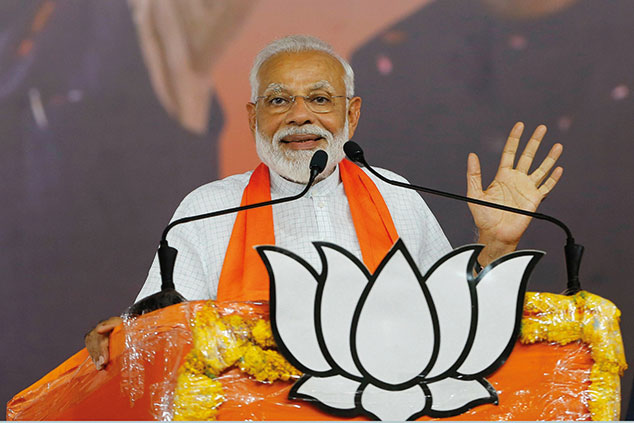
We in the UK may be transfixed by Brexit, but out in the rest of the world there are numerous interesting developments for adventurous investors to keep a close eye on.
The key country to watch is India, especially now that Prime Minister Narendra Modi has been resoundingly re-elected. Although doubts about his reformist zeal have intensified over the last few years, Modi’s BJP party has delivered on around 50 key reforms. It’s worth highlighting real progress on rural electrification; a reform of how benefits are transferred to people; and significant investment in building toilets and new roads.
There’s obviously lots still to do, not least in job creation for the young population, as well as in boosting low farm incomes. However, the political stability should help India become the world’s third-largest economy by 2030. And if China becomes more of a “frenemy” than a friend to the Western world, then India could be on the receiving end of more foreign direct investment.
With GDP growth averaging around 7%, and inflation rates stabilised below 5%, the scene is set for some of that “super- growth” the BJP has been promising foreign investors for some years now. Indian equities remain expensive though, and my hunch is that British investors need to tread with care in this complex and sometimes opaque market. My preference is for the actively managed funds in this sector, with four investment trusts topping my list: Aberdeen New India (LSE: ANII), Ashoka India (LSE: AIE), India Capital Growth (LSE: IGC) and JPMorgan Indian (LSE: JII). If you are determined to use an index tracker, maybe consider the Xtrackers Nifty 50 Swap Exchange-Traded Fund (LSE: XNIF).
Indonesia settles down
Another country that could benefit from big Asian trends is Indonesia. The return to power of Joko Widodo (Jokowi), with more than 55% of the vote, is a sign that this once volatile country is settling down. On paper, it should be a powerhouse of southeast Asia, with a huge population, abundant natural resources and a tradition of moderate religious observance. Nationalism, to date, hasn’t been too strong a force. The president is also sensible, reform-minded and ecumenical in religious terms, although he has been pushed into supporting more conservative Islamic policies in recent years. His convincing re-election should be a big positive, although foreign investors had largely factored it in – the Jakarta Composite index dropped 8% from its pre-election level, tracking the weakness in Asian equities and the recent soft economic data.
There’s value in banks
That weakness is largely because Indonesia is facing its own domestic economic issues – there’s been a fall in exports growth, which coincided with the rise in oil prices. This has once again raised concerns over the current-account deficit (importing more than it exports), turning the rupiah into one of the worst-performing currencies in Asia.
However, Asian equities analysts at French bank Société Générale reckon matters could improve, with the recent softness in the economic data to recede in the second half of this year, led by improved investment and consumption activity. “With Jokowi’s return and the elections out of the way, we expect government spending to shift back to public investment.” Société Générale analysts are keen on local Indonesian banks, with price/earnings (p/e) ratios running at around 14. This represent good value, with 2019 earnings-per-share growth estimates remaining unperturbed at 14%. Banks constitute a large part of the local index, which is tracked by ETFs Xtrackers MSCI Indonesia (LSE: XMID) and HSBC MSCI Indonesia (LSE: HIDR).